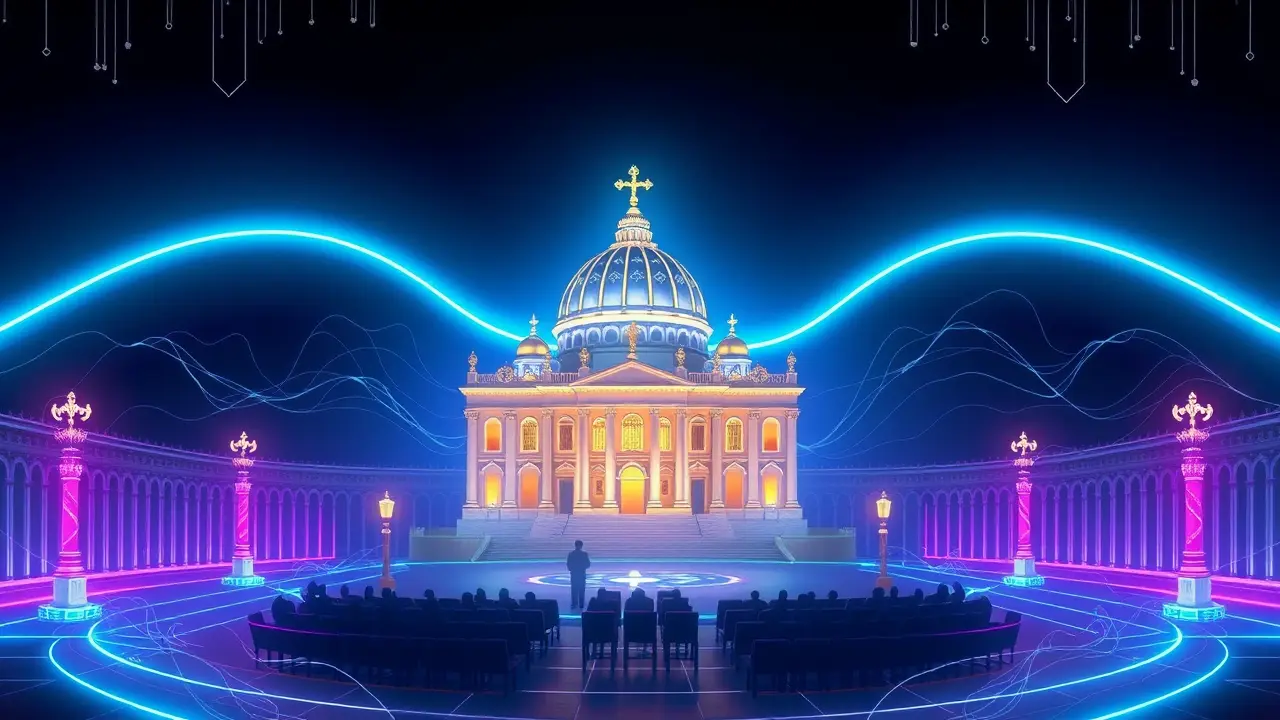
AIai safety & ethicsAI Regulation and Policy
Vatican Advocates Ethical AI Regulation and Policy
MI
Michael Ross
4 weeks ago7 min read2 comments
The Vatican's recent intervention advocating for ethical AI regulation and policy, while perhaps unexpected to secular observers, is in fact a continuation of the Catholic Church's long and deliberate engagement with the most pressing technological crossroads of the modern era. This isn't a sudden foray into unfamiliar territory; it's a modern chapter in a story that began with pronouncements on nuclear energy, biotechnology, and the environmental crisis, positioning the Holy See as a uniquely timeless voice in a debate often dominated by short-term commercial and geopolitical interests.The Church’s perspective is fundamentally anthropological, asking not just 'can we' but 'should we,' framing the explosive growth of artificial intelligence through the non-negotiable lenses of human dignity, the common good, and a preferential option for the poor. Drawing from a rich tradition of social doctrine that stretches back centuries, the Vatican’s stance challenges the prevailing Silicon Valley ethos of 'move fast and break things' by insisting that a technology with the power to reshape human identity, social structures, and even our understanding of consciousness itself must be guided by a robust ethical framework.This is a direct echo of Isaac Asimov’s prescient Three Laws of Robotics, translated from science fiction into a global policy imperative, where the primary goal is to ensure that AI remains a tool in service of humanity, not a force that subordinates it. The potential consequences of unbridled AI development are stark: the entrenchment of algorithmic biases that perpetuate social injustice, the weaponization of autonomous systems that erode international stability, and the creation of a surveillance capitalism so pervasive it threatens the very fabric of personal freedom.Conversely, the opportunities are equally profound—AI could revolutionize medical diagnostics, optimize resource distribution to combat hunger, and unlock new frontiers in scientific discovery. The Vatican’s call for regulation is not a Luddite rejection of progress but a plea for prudence, a virtue that balances innovation with responsibility.It seeks to build bridges between tech executives, policymakers, and ethicists, proposing a global and inclusive dialogue to establish guardrails that prevent a 'race to the bottom' in ethical standards. This aligns with growing movements within the tech community itself, from researchers warning of existential risks to UX designers advocating for human-centered AI.The Holy See’s diplomatic influence, with its permanent observer status at the United Nations and its extensive network of global institutions, gives this moral argument significant political weight, potentially shaping international treaties and national legislation. In essence, the Vatican is not trying to write the code for the next large language model; it is attempting to program the moral operating system upon which all future technological progress should run, insisting that efficiency and profit must never be allowed to override the sacredness of the human person and the integrity of our shared future.
#editorial picks news
#Vatican
#AI ethics
#Catholic Church
#technology policy
#public debate
#policymaking
#religious leadership
Stay Informed. Act Smarter.
Get weekly highlights, major headlines, and expert insights — then put your knowledge to work in our live prediction markets.
Related News
Comments
Loading comments...
© 2025 Outpoll Service LTD. All rights reserved.